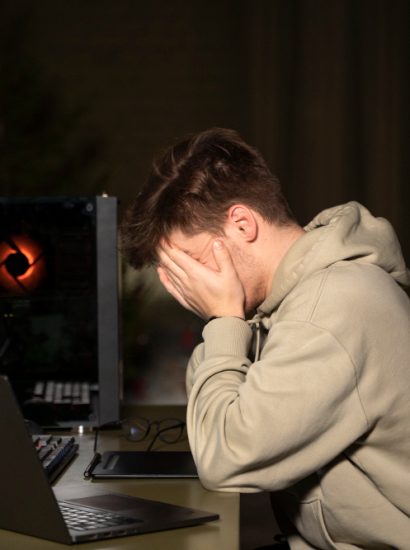If you’re investing in a new gaming desktop or building a high-end rig, one of the most common questions is: How long should a gaming PC last? The answer depends on several factors—your budget, hardware quality, usage intensity, and how demanding future games become.
This guide explores the average lifespan of a gaming PC, how long key components typically last, when to consider upgrades, and tips to extend your system’s performance over time.
Average Lifespan of a Gaming PC
On average, a well-built gaming PC can last:
| Performance Level | Expected Lifespan |
| Entry-level Gaming PC | 3–4 years |
| Mid-range Gaming PC | 4–6 years |
| High-end Gaming PC | 6–8+ years |
Note: “Lifespan” refers to how long your system can reliably run modern games at acceptable performance levels, not just whether the hardware is still functional.
How Long Do Key PC Components Last?
CPU (Processor)
- Lifespan: 5–7 years
- Upgrade Frequency: Every 5+ years if performance bottlenecks occur
- Signs of Upgrade Need: Struggles with newer games, background multitasking lags
GPU (Graphics Card)
- Lifespan: 3–5 years (performance)
- Upgrade Frequency: Every 3–4 years for top-tier gaming
- Signs: Dropping frame rates, can’t meet newer games’ minimum specs
Motherboard
- Lifespan: 6–10 years (unless damaged or outdated by new standards)
- Replace With: CPU or major system overhauls
Power Supply (PSU)
- Lifespan: 5–8 years
- Tip: Use high-quality PSUs with 80+ certification to avoid early failure
Cooling System
- Lifespan: 3–5 years (fans, AIOs); longer for air coolers with cleaning
- Warning Signs: Increased temps, fan noise, thermal throttling
Storage (SSD/HDD)
- Lifespan:
SSD: 5–10 years
HDD: 3–5 years
- Upgrade Frequency: When storage fills or speed becomes limiting
RAM (Memory)
- Lifespan: 5–8 years
- Upgrades: Add more RAM if games require it (e.g., 16GB → 32GB)
Factors That Affect Gaming PC Longevity
- Build Quality
Higher-end components typically last longer and age more gracefully. - Gaming Resolution & Demands
1080p: Less GPU stress; longer lifespan
1440p or 4K: More demanding; faster obsolescence
- Game Titles Played
AAA games require more power than indie or esports titles. - Maintenance
Regular dusting
Thermal paste replacement every 2–3 years
Software updates and driver maintenance
- Overclocking & Usage
Heavy overclocking or 24/7 usage can shorten component life.
Signs It’s Time to Upgrade or Replace Your Gaming PC
- New games struggle to maintain 60 FPS at low/medium settings
- Hardware temps spike regularly despite clean fans
- Boot times are slow even with an SSD
- Incompatibility with new GPUs, CPUs, or memory standards
- You’re investing more in repairs than the system’s worth
Tips to Extend the Life of Your Gaming PC
| Do This | Avoid This |
| Clean dust regularly | Letting fans and vents clog |
| Use surge protectors/UPS | Power surges or brownouts |
| Update drivers and BIOS | Running outdated firmware |
| Replace thermal paste | Ignoring heat buildup |
| Monitor performance (HWMonitor, MSI Afterburner) | Ignoring signs of overheating or lag |
How to Future-Proof Your Gaming PC
- Buy slightly higher specs than your current needs
- Choose modular components for easier upgrades (ATX, DDR5 support)
- Install ample RAM (at least 16GB; 32GB for multitasking/streaming)
- Use a quality PSU that can handle future GPU upgrades
- Consider SSD boot drives for speed and longer-term reliability
SEO Keyword Strategy
| Keyword | Placement |
| How long should a gaming PC last | Title, meta, H1, intro, conclusion |
| Gaming PC lifespan | Subheadings, comparison chart |
| When to replace gaming PC | Upgrade signs section |
| Gaming desktop life expectancy | Intro, performance expectations |
| How often to upgrade gaming PC | Component breakdowns, FAQ |
Internal linking suggestions:
- “Best budget GPUs for 2024”
- “How to build a gaming PC under $1000”
- “Gaming PC maintenance checklist”
- “Overclocking vs upgrading: What’s better for longevity?”
Conclusion
So, how long should a gaming PC last? With proper care and a balanced build, most gaming desktops can provide solid performance for 5–8 years. Key upgrades—especially to your GPU and storage—can dramatically extend usability without a full rebuild.
Whether you’re a casual gamer or a competitive player, regular maintenance and smart component choices ensure you get the most out of your investment for years to come.
FAQs
1. Can a gaming PC last 10 years?
Technically yes, especially if it’s a high-end build. But you may need to upgrade components like the GPU or storage to keep up with modern games.
2. How often should I upgrade my gaming PC?
Most gamers upgrade the GPU every 3–4 years and the CPU/motherboard every 5–7 years depending on performance needs.
3. Is it cheaper to upgrade or replace a PC?
It’s often cheaper to upgrade individual components, but if multiple parts are outdated, a new build may be more cost-effective.
4. What affects a gaming PC’s lifespan the most?
Primarily the quality of components, gaming intensity, and how well you maintain the system.
5. Can a gaming PC be used for non-gaming tasks?
Absolutely! Gaming PCs are great for video editing, 3D rendering, streaming, and everyday use thanks to their power.
Also read: Leadership Weaknesses: Common Traits and How to Improve Them









